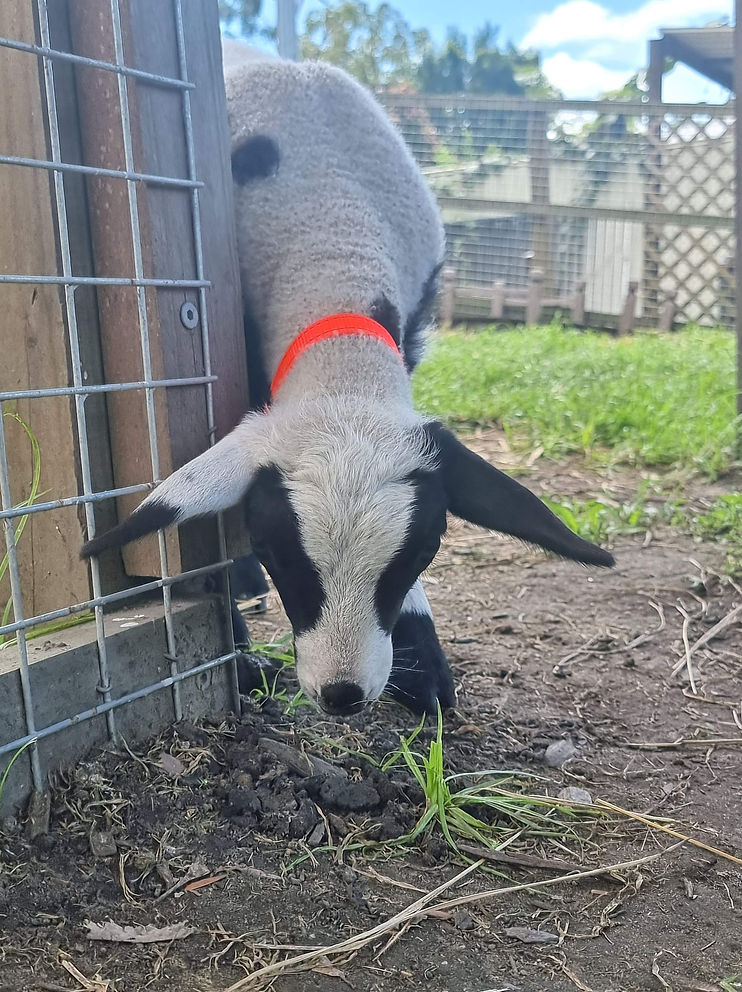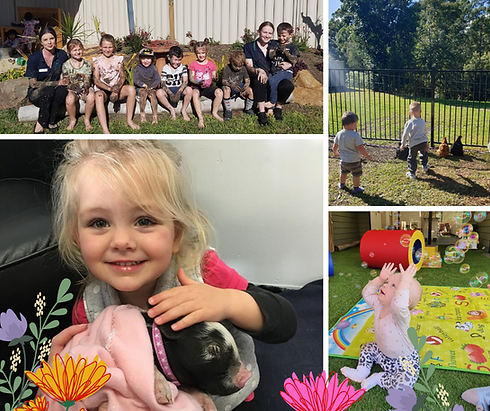Our Farmhouse
Welcome To Our Farmhouse
The Benefits Of Animals
Children’s worlds are filled with animals, both living and in pictures, stories, characters and toys. This is why it makes sense to bring a real life farmhouse to welcome a unique nurturing element to the Grassroots Early Learning Centre where your children can benefit from engaging with our beautiful animals and learn valuable life lessons in a supervised secure, social environment that is familiar and comfortable.
Start With The Basics
Start with animals your child sees most often, such as birds, cats, and dogs. Talk about the sounds they make, where they live, and things they like to do.
Teach Them To Be Gentle.
When first introducing animals remind your child to be gentle and avoid touching the animal’s face or pulling its tail or ears. Not only will this help the animal to remain calm, it will also teach your child kindness to animals.
Teach Them To Be Safe
If you have a family pet, letting your child help with its care is an ideal way to help them learn about animals. Depending on the age of your child, this may be as simple as helping to fill the water dish or asking your older child to take the dog for a “walk” in the backyard, this will build their confidence and identify the emotions & movements of animals.

For starters, here is some great ideas to help your child learn more about animals before they visit our amazing Farmhouse and help build confidence at a young age.

Our Amazing Animals
What Amazing animals will they get to play with & care for?
The Benefits & Lessons:
Animals give unconditional love, empathy, confidence and responsibility.
Animals can also help children socialize and increase verbal skills.
A roster is in development so each age group can experience the animals in a calm and safe environment under supervision along with strict hygiene protocols in place to prevent the spread of germs & infection
Learning Animal Care & Handling
When children have the opportunity to feed animals they improve fine motor skills as well.
Knowing how to handle large and small farm animals is a valuable skill. Mini goats, Guinea Pigs, and poultry is different than caring for a household pet.
This allows them to interact with farm animals in a safe way, preparing them for any future interactions. In a way, this hands-on experience is insurance for their futures. If they ever come across a goat or horse, or chicken in the future, they’ll know how to avoid injury they also learn the importance of caring for farm animals.
Encouraging Confidence & Responsibility
If Children are given a chance to interact with animals, children learn to care and nurture for that animal and help it grow up. Children need opportunities to prove their skills not only to themselves but to the friends & family too. Allowing them to take on responsibility early gives them the confidence to handle other responsibilities that come their way.
Consider the daily chores which gives them training for any future pets they might care for. In the long run, it might even prepare them for new additions to the family or future employment later in life
Inspiring Creativity
Like we mentioned earlier animals are a big part of your child’s life this can blend through into creative play by pretending to be an animal by moving or walking like one it helps to develop body movement awareness and motor skills along with helping the child learn about self-regulating which is the ability to manage behaviour, feelings and energy levels. They may even act out the daily chores they have encountered in real life to show that they have learned discipline and responsibilities.
Conversation with Science & Math’s
This can open the door to creating a conversation about types of animals, sizes, parts of the animal, colours, names, breeds, counting. This all helps bridge the gaps in building language and concepts for science & Math’s.


